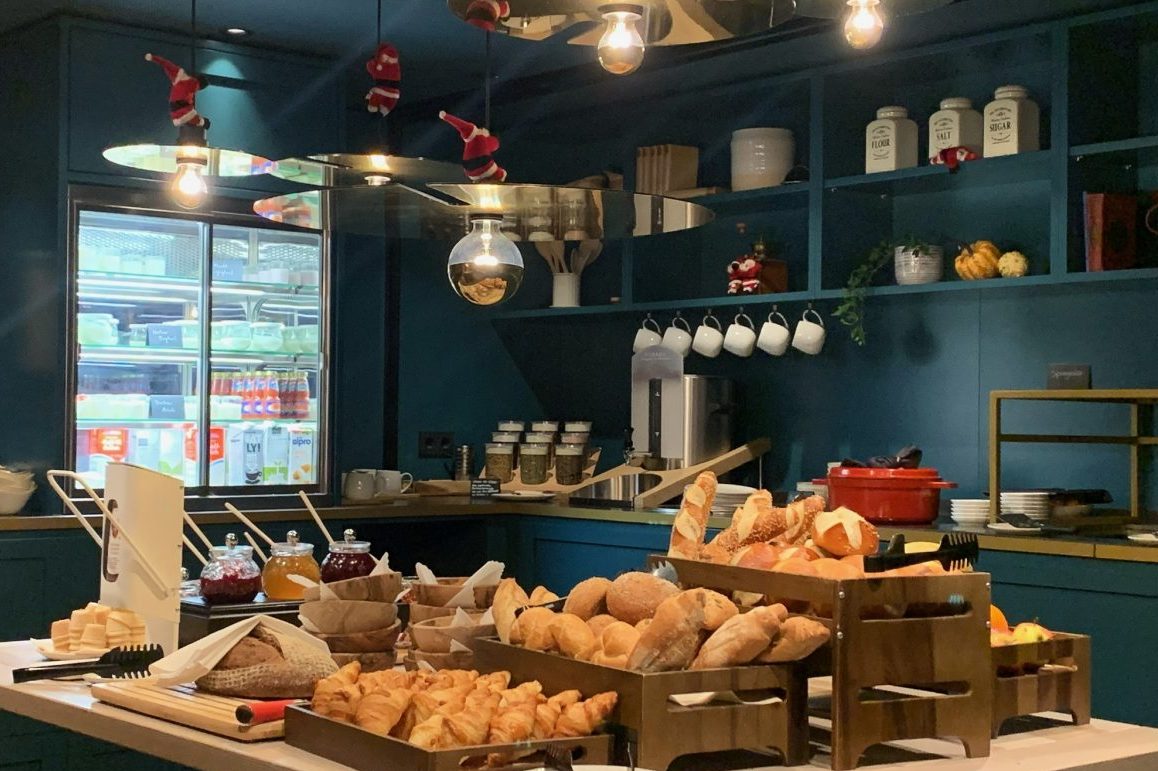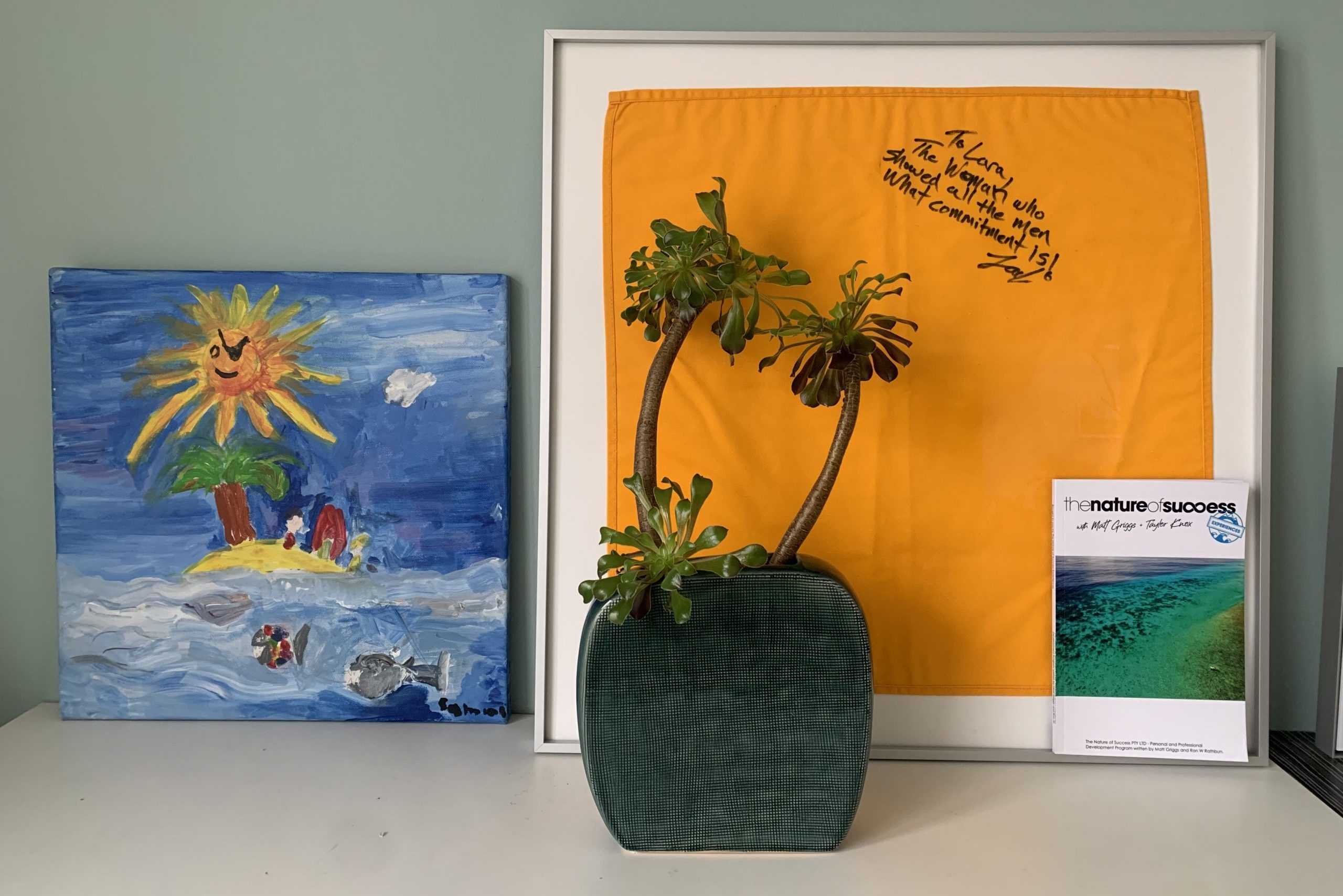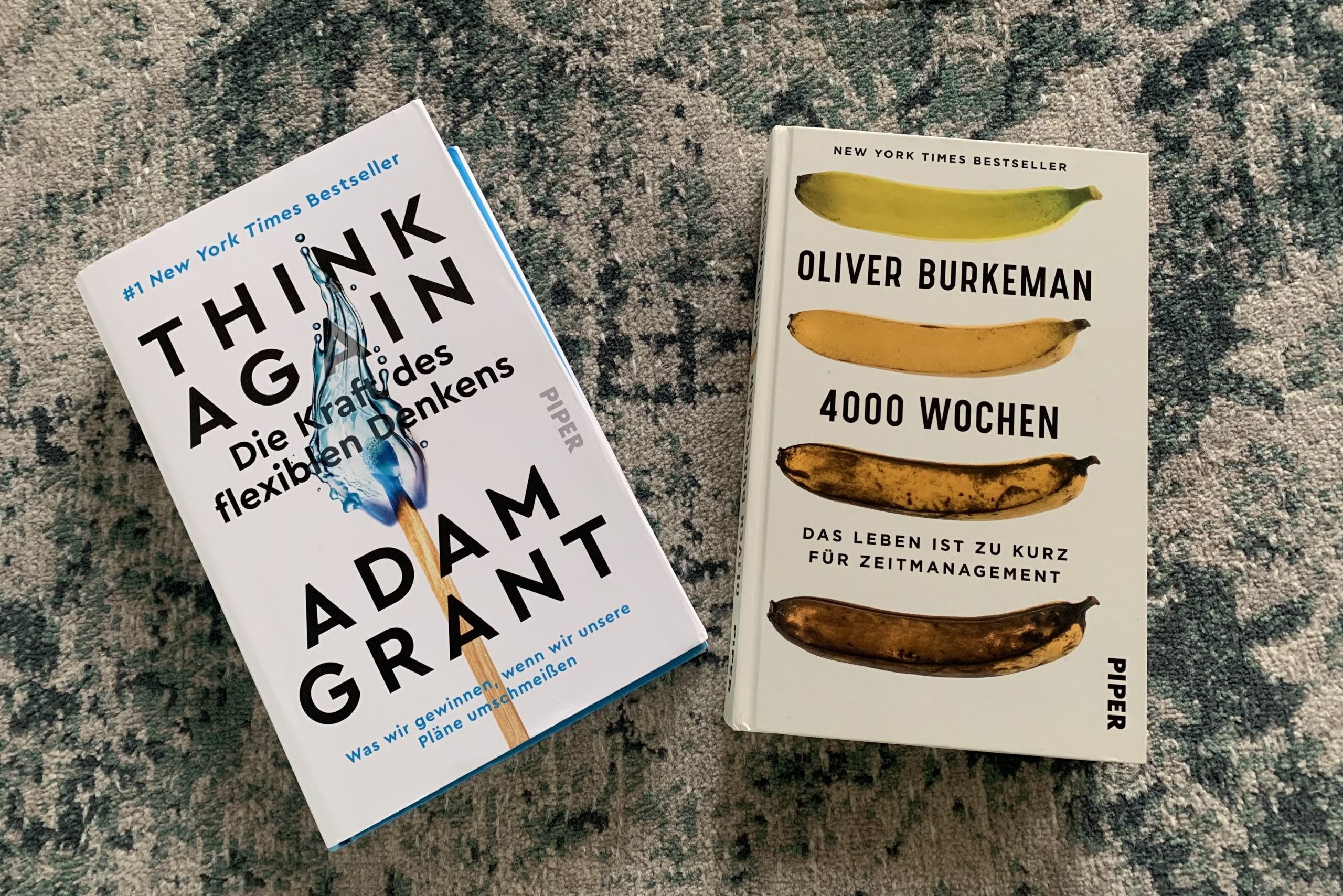“What is your life philosophy?” Matt Griggs asked me for the first time in 2019 as part of my development measure. After my Kelee meditation, I contemplated on it and suddenly had an image in my mind: that of a breakfast buffet. It had struck me that people fill their breakfast plates very differently. There’s a croissant with jam on one, bacon and eggs on another. A third fellow traveler has a bowl of fruit salad and yogurt in front of him. People choose very different things from the same buffet. Just like in life.
Which breakfast type am I – and what does that say about my leadership qualities?
And is there an actual rule? Once a ham sandwich, always a ham sandwich? Is there such a thing as different breakfast types? If so, is the bacon-and-egg type more suited to a leadership role than the cereal type, or vice versa? If you ever wonder what psychologists think about when they are having breakfast: it might be something like this. As for the question, “What kind of breakfast type am I?”, I can only answer it this way: None at all! It already starts with the beverage. Very often I drink coffee, sometimes I feel like tea. Sometimes I prefer a fried egg, the next day a fruit salad. A 21-year-old influencer who posts makeup tips on Instagram would probably formulate the following life philosophy in this case: “Reinvent yourself every day!” Well, it is not my job to generate followers to be sponsored by a cosmetics company. So “reinvent yourself every day” doesn’t quite fit for me. I don’t want to either, I usually feel quite comfortable in my skin even without makeup. But we can conclude: breakfast typologies are nonsense.
Pigeonholes are for pigeons
Nevertheless, I wouldn’t want to rule out the possibility that at this very moment a clever consultant is developing a questionnaire to diagnose leadership qualities based on breakfast habits. There is nothing that doesn’t exist and a huge market for personality type questionnaires. People love tools that allow them to sort others into pigeonholes. Personally, I would complete such a questionnaire out of sheer curiosity. The result would probably be something like: You are the red-yellow type! The result would entertain me and give me something to talk about over breakfast – but that’s about it. That seems to be the case with many of these tools: Typologies are entertaining, but they almost never have any practical relevance. Pigeonholes are for pigeons, for developing people they are only of limited use in my opinion. That’s why I don’t use a personality type questionnaire in my coaching sessions. But back to the life philosophy.
“The show must go on!”
Maybe the image of the breakfast buffet is not suitable for developing my life motto? Food doesn’t play that big a role in my life either. I eat everything I feel like, but in moderation. After all, as a consultant and coach, it’s also my job to keep an event going. Indulging in a food coma is not something I can afford to do. How about “The show must go on”? Nope. I can’t sing, and it was never my dream to lead a dramatic and short life like Freddy Mercury. He died at the age of 45. “Everything in moderation” was certainly not his life philosophy, and it doesn’t sound coherent to me either.
Consciousness determines being
But I am convinced that we all have a philosophy of life. Perhaps we are just not aware of it. Matt Griggs says that if we are not aware of something, we have not understood it. His life philosophy is, by the way: “Live with love in your heart, adventure in your soul, and purpose in your step.” This is very consistent with the loving, courageous, and straightforward person I see in Matt. Apparently our life philosophy has an impact on how we work, lead, and live. It is close to the question: Who am I? So wouldn’t it make sense to shed some light on this? In 2022, I did this with some of my clients and several of them were immediately able to verbalize their life philosophy:
- “In the end, the good always triumphs!” said someone I hold in extremely high regard because of his greatness and his relaxed nature.
- “Live and let live” is the philosophy of life of a free spirit I know very well and whom I admire for his tolerance and openness.
Perhaps, in the end, our consciousness determines our being?
Course corrections in our being
Clients who had similar difficulty as I did in formulating a life philosophy found the following question helpful: “What is one piece of advice you would give to your children at the end of your life?”
One client responded by saying: “I have always lived by the maxim: ‘Diamonds are formed under pressure.’ But I would never recommend that to my children. To them I would say: ‘Seize the day!’” I asked Mr. X what might happen if he took this advice more to heart himself. This question led to a very moving moment in the coaching session.
This is another added value of exploring our philosophy of life: when we become aware of it, we can determine whether it is working for or against us. With this awareness, we can develop it further and make course corrections in our being.
4000 weeks of being allowed to say yes and no
I have also come a little closer to my life philosophy in recent months: Two authors have inspired me:
- Adam Grant, author of “Think Again. The Power of Knowing What You Don’t Know.” In his bestseller, he describes why it is sometimes so difficult for us to change our opinions. But changing our opinion in the face of new information is the ideal way to make better decisions. In a podcast, Grant responded to the question of what to take to heart when making decisions: “Yes is a commitment. No is a choice.“ I liked that! If I say “no” to the croissant at the breakfast buffet, I can still choose from all the other delicacies. If I say “yes” to the croissant, I exclude the rest of the offerings on the buffet. The point then is to stand by the decision, rather than ponder whether the fruit salad or fried egg would have been a better choice.
- Oliver Burkeman, author of “Four Thousand Weeks: Time Management for Mortals,” who dispels many myths about time management. He recommends we stop trying to optimize our perceived lack of efficiency with guilty consciences. Instead, we should become aware of our finite existence. We are constantly afraid of missing out (= FOMO: Fear of missing out), but nobody is able to eat a whole breakfast buffet. In fact, we always miss out on most of what happens on this planet in the approximately 4000 weeks we have in our lives – on average. No one knows how much time each of us has. We become aware of this if, for example, a 42-year-old passes away. What would this person give to be allowed to decide once again whether to read a book, watch another episode of Netflix, or go straight to bed? We are not entitled to 4000 weeks of life. Against this background, every moment that we are allowed to experience is a gift that we can meet with joy in life (JOMO: Joy of missing out). Every decision we can and are allowed to make becomes, from this perspective, “an opportunity to select from an enticing menu of possibilities” (p. 81). Now the only question is, what do I choose?
Taylor Knox awarded me the yellow jersey during the development measure 2022 for being “the woman who showed all the men what commitment is.” My life philosophy, which I formulated on the trip, is: “Yes is a commitment. No is a choice. Choose wisely.”
If, at some point, the maxim of making wise decisions no longer suits me, I can decide again and may pick something else from the menu of possibilities. Which possibility do you choose?



